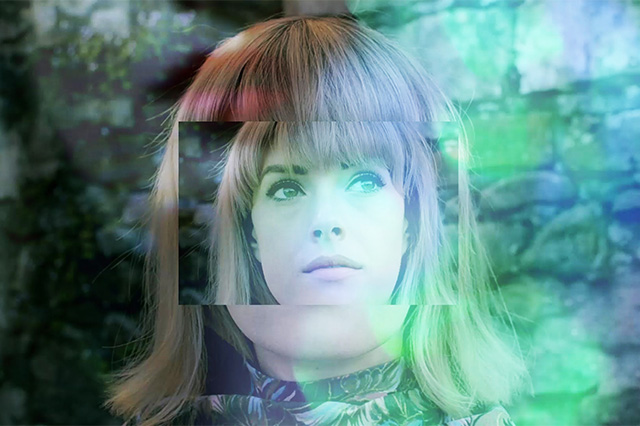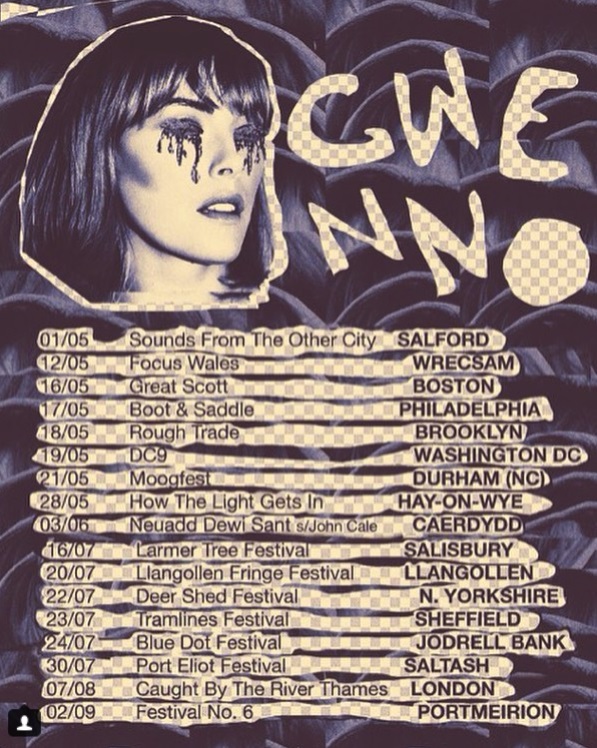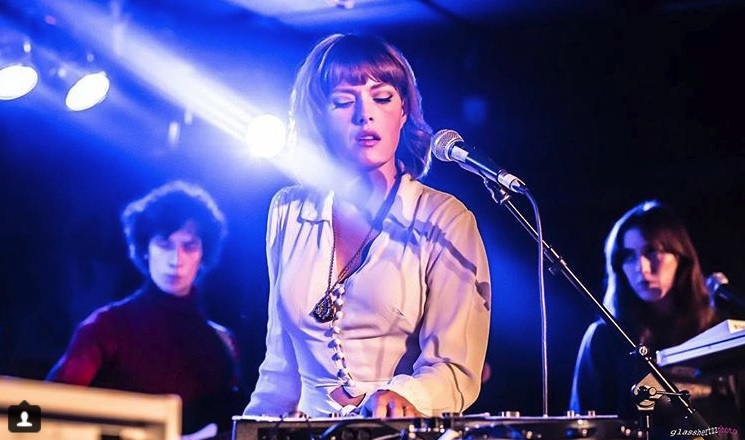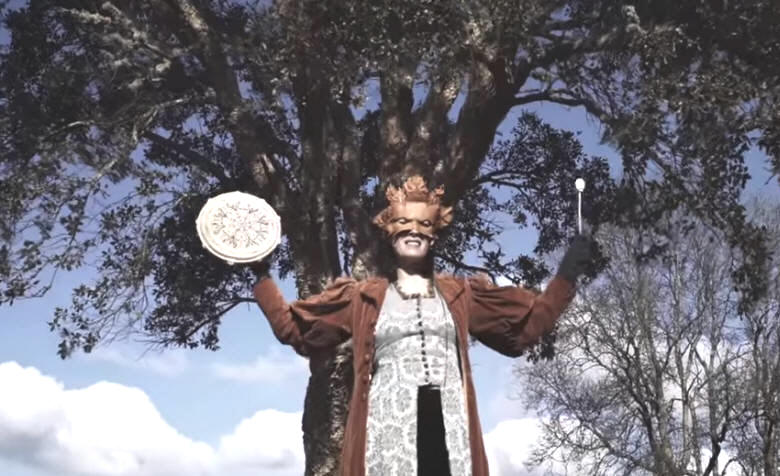|
|
| home | exhibitions | interviews | features | profiles | webprojects | archive |
|
Gwenno on Lost Lands, Brenda Wootton and Peter Lanyon A multi-linguist musician, Gwenno's Cornish language album 'Le Kov' was released in March 2018. e-interview by Rupert White
I understand that your mother is a Welsh
speaker, and your father, Tim, a Cornish speaker. How did this
upbringing shape your artistic outlook, and cultural identity? It's definitely something that I've grown into to a certain extent and I did have a period of rejecting it altogether, just so that I could see what else was out there. But I've come to appreciate its 'other' perspective as time's gone on, and having explored it more, I've bonded with its wider philosophy and it's helped me to see another point of view on living in Britain and the wider world. Making music has been the key for me, the
fluidity of a life of a song makes every language and culture incredibly
exciting and full of potential.
Who else has been important or
influential to you and why?? Those three artist/groups that I've mentioned had an incredibly strong sense of place and local history and were all so different from each other. As I got older, more minimal electronic music started to seep into the mainstream via rave culture and that was probably the first time that I really started to listen to chart music, that approach to machines and the expression of community, the sense of a tribe through communal dancing has also really influenced my music.
Talking of Brenda Wootton, I know you're
reading the biography written by her daughter Sue (Ellery) at the
moment. What do you like about Brenda? I've always felt that same honesty come through in Brenda's approach to music too, and through listening to recordings of live performances. I really like how she can't be pigeonholed musically, that she is a singer of the 'folk' songs of Cornwall but in the widest and most varied sense possible. I find great comfort in her voice, and her albums were on the stereo a lot at home when I was a child so I'm sure that has a bit to do with it, but as I've gotten older and I've made the links between all of my experiences of music, she embodies how varied and open those experiences are. It's about rejecting that idea of songs as a
commodity, and whilst selling records is an inevitable part of keeping
afloat as a musician in the modern world, she suggests another way of
existing.
Brenda came out of the 60's folk scene, at a time when there was still a hankering for historical roots - for 'authenticity'. It strikes me that you have a different relationship to the past, possibly because you don't use traditional instruments. Can you comment on this? What are the consequences of using synthesizers etc? Electronic music is a big part of my musical experience because of the era in which I've grown up in. It's also a very practical approach to making music as I'm lucky enough to live in a part of the world where I have easy access to new music-making technology, and particularly as a woman in a male-dominated creative industry it has given me the opportunity to make my own music with a lot more freedom than say, 20-30 years ago when it was all being made in professional studios run by men, and it was much harder to get your musical voice heard if you weren’t one. All music is made as a reflection of the time and place in which it was created so I don't believe in 'musical authenticity' as a term really. There's an authenticity to all music, which makes the use of the term as a way of measuring the value of music irrelevant. Sonically, it's all about taste and I have become more interested in the instruments which were familiar to me as a child, so I'm really open to exploring all kinds of sounds. I've started trying to buy more instruments which haven't been made by people exploited by late capitalism (electronics are awful for this) so that is also an approach which I'm exploring now that I'm writing new music again. It's a tough one as it's quite difficult to detach yourself from the consumerist society around you but it's worth asking the question I think - has everything that you’re using to create your art been made by someone who is valued for that work? There is of course a big arts and crafts
influence on the Cornish language revival so it feels like a natural
next step for me, to try and work out a way of being more ethical in my
music-making: who knows if I'll manage it though! And I'm writing this
on a computer! Working with a group of musicians again as a band has
also helped to reintroduce more organic elements to the songs too, it's
really all about working out who your community is and your attempt to
try and reflect that sonically.
Do you want to say something about your
second album Le Kov (which translates as Place of Memory)? So for
example I understand Tir Ha Mor was inspired by painter Peter
Lanyon... The sunken lands and lost cities of Lyonesse, Langarow, their Breton and Welsh equivalents Ker Ys and Cantre'r Gwaelod really appealed to me as imagined places that I could project utopia onto. The Medieval city-state - a Kernewek metropolis of sorts is what I had in mind, which was easier for me to imagine in many ways as a Cardiffian! I then discovered Peter Lanyon's work, and was inspired by his approach in responding to the landscape which is how Tir ha Mor which means Land and Sea, came about. That was the first song that I wrote for the album. The language was just like a Pandora’s Box of culture, exploring it helped me take ownership over it too and that has informed new songs and new ways of thinking which is exciting!
The
video for Eus Keus looks like it was mostly shot at Port Eliot,
and you are wearing Medieval/Tudor-style dress in it (photo above). Its
interesting how many of the Celtic revivalists were interested in the
Medieval period.
I would like to share a quote by Robert Morton Nance to finish: 'To all those where love of freedom and peace is as strong as in our own, and where a similar struggle is needed to preserve from oblivion history, language, traditions, literature and music, not merely because these are vital to one particular little nation, but because each fits into its own place in the great scheme of world-culture, to which diversity is as necessary as unity'
http://heavenlyrecordings.com/artist/gwenno/ https://www.brendawootton.org/
|
|
|




